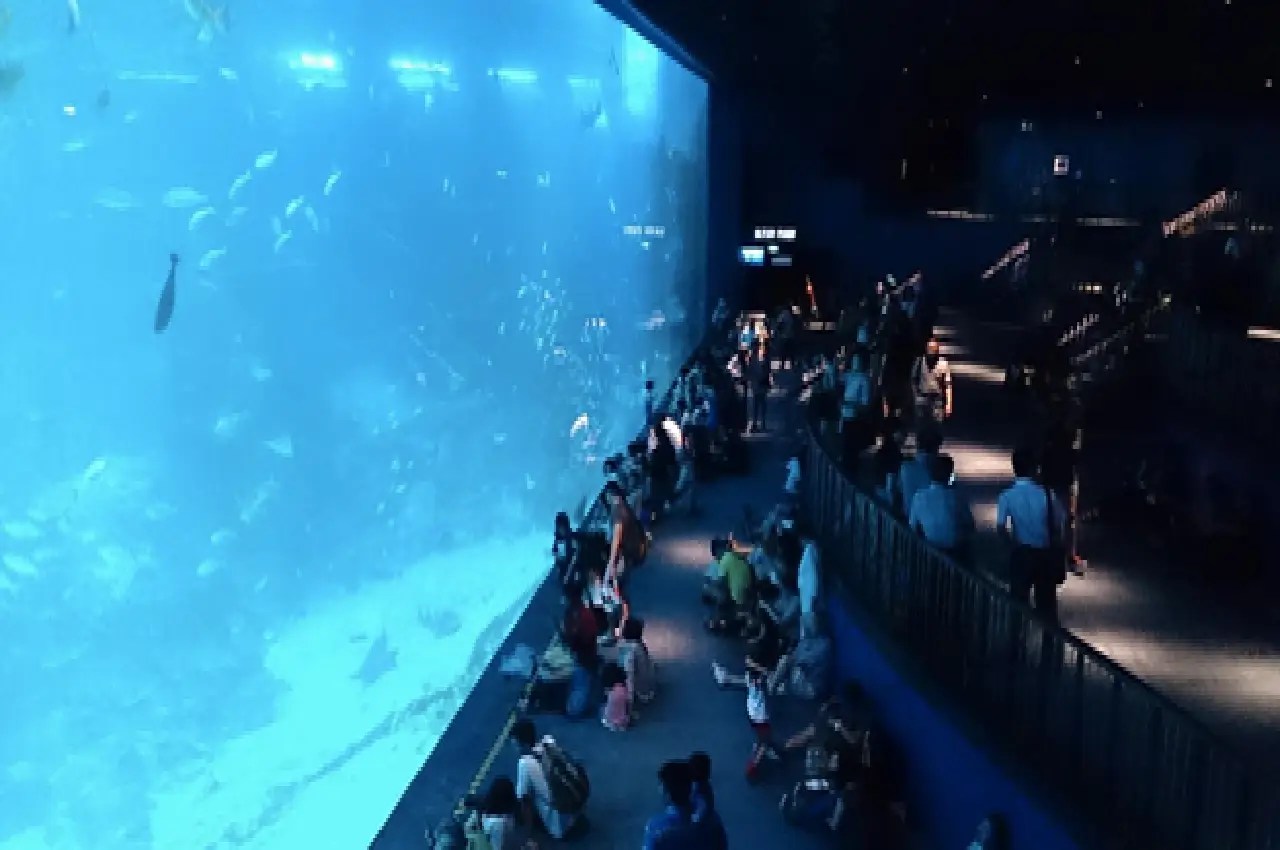Hyderabad: The Telangana government’s recent announcement to establish India’s largest Aquarium and Aviary in Kothwalguda, Hyderabad, has sparked concerns among conservationists and animal rights advocates.
Facilities like aquariums and aviaries have a profound impact on the natural ecosystem, particularly in the midst of the ongoing sixth mass extinction. Because captive breeding is challenging, sourcing specimens from the wild places an additional strain on already vulnerable populations, exacerbating biodiversity loss. As a result, the IUCN’s Red List and the State of Birds’ Report 2020 indicate the decline of marine species and bird populations globally and in India.
Also Read: UNBELIEVABLE! FARMER EARNS RS 3 CRORE IN 45 DAYS; KNOW HOW
Aditya, one of the organizers from Animal Save India’s Hyderabad Team, commented, “While the world is moving towards respecting the interests of animals, it saddens me to hear that the Hyderabad authorities are encouraging animal captivity as entertainment. Animal captivity is regressive and violates the animal’s interest in living free. Hearing about the cruel touch tanks, where visitors can maltreat these sensitive beings, is especially shocking. This proposal needs to be discouraged!”
The proposed aquarium and aviary project can have detrimental impacts on the environment, animals, humans and the state’s interests in several ways. It can lead to irreversible consequences, as listed forward.
Dangers to Marine Life
The establishment of aquariums and aviaries can have grave consequences for wild animals. The practice of capturing wild fishes for the aquarium trade leads to high mortality rates and ecosystem damage. Shocking incidents, such as mass deaths of fishes during renovations at the Taraporewala Aquarium in Mumbai and the demise of sharks shortly after arrival at the Surat aquarium, highlight the devastating effects of these establishments. The use of cyanide fishing further endangers marine life and destroys coral reefs.
Also Read: HYDERABAD: CUSTOMS OFFICIALS SEIZE GOLD WORTH RS 20 LAKH FROM UNDERGARMENT, WATCH VIDEO
Water Usage
Large-scale aquariums and exhibits require significant amounts of water, which strains local water resources already facing scarcity and drought conditions. The proposed park in Kothwalguda, Hyderabad, is projected to consume about 3 million litres of water, with detrimental effects on local waterways and ecosystems.
Human Safety and Health Concerns
Interactions between visitors and animals in these facilities can lead to accidents and animal attacks, despite safety measures. Potential risks for humans in interactive touch tanks include several incidents of animal attacks, such as a woman bitten by a 2-foot-long shark in Florida, resulting in a hand injury, and a 12-year-old girl being bitten by a shark while feeding stingrays in a touch tank at a zoo in New York. Additionally, close contact with birds in aviaries increases the risk of contracting zoonotic diseases, triggering allergies and respiratory problems among visitors and staff.
Also Read: CONGRESS BREATHING SIGNS OF LIFE, REVIVAL IN TELANGANA, ANDHRA PRADESH
Fundamental Rights of Animals
The establishment of aquariums and aviaries raises concerns about infringing upon the fundamental rights of animals. Indian courts have recognised birds’ rights to live freely and fly, prohibiting their captivity for business purposes. The Supreme Court of India has also acknowledged the fundamental rights of animals and issued directives to prevent cruelty towards them.
In light of these concerns, exploring alternative methods to prioritise animal welfare and conservation is essential. Technological advancements, such as animatronic replicas of animals, offer ethical alternatives to live animal exhibits. Entrepreneurs in the United States are developing animatronic dolphins to replicate their living counterparts, offering an ethical alternative to live animal exhibits. Virtual tours, models, and videos can be used to educate and foster a deeper understanding and appreciation for wildlife among children.
Celebrities such as actress Saada Syed, Renu Desai, Adivi Sesh, Sri Divya, Sashi Kiran (Director) and Rashmi Gautam also took to social media to support the cause.
Sri Divya, a Tollywood actress and an environmentalist, said, “It’s happening everywhere and won’t stop unless we speak up. We reject finding amusement in facilities that confine these magnificent creatures. Let’s end the captivity of wildlife for human entertainment, starting now.”
A notice has been sent by the Telangana High Court to the government and authorities to file a response, for which August 4th has been fixed as the deadline. It is crucial for decision-makers to listen to the voices of the public, conservationists, and animal rights advocates. By re-evaluating the proposed project and exploring alternative, ethical approaches to wild animal conservation, we can strive for a future where all animals are respected.
Read More: SPICE JET SUSPENDS FLIGHTS ON PUDUCHERRY-BENGALURU-HYDERABAD ROUTE TILL JULY 12; KNOW DETAILS













